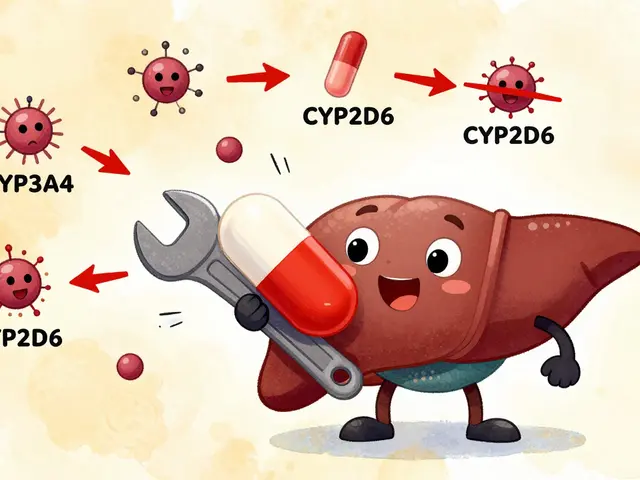Family and Friends: Practical Health Help and Medication Guides
When someone you care about needs medicine or health advice, you want clear, reliable steps—not confusion. This tag page gathers easy-to-read articles that help family members and friends navigate prescriptions, treatment options, and everyday care. You'll find guidance on buying meds safely online, comparing alternatives when a drug causes side effects, and simple ways to support someone with chronic illness.
Looking for safe online pharmacies? Start by checking if the site requires a prescription, shows a physical address, and offers contact info. Read reviews and compare prices, but don’t be swayed by extremely low costs—those can signal counterfeit meds. Our articles on buying specific drugs like Levlen, Esomeprazole, and Quibron-T walk you through practical checks and red flags to avoid scams.
Talking to Loved Ones About Meds
It’s awkward to bring up medication mistakes or side effects, but you can make it easier. Ask open questions: "How are you feeling on that pill?" or "Have you noticed any new symptoms?" Encourage them to keep a simple log of doses and effects. If a medication seems to cause harm, suggest calling their prescriber or visiting urgent care. For children or older adults, offer to join the call or appointment to take notes and ask questions.
We also cover specific scenarios that families face. If simvastatin causes muscle pain, our piece on alternatives explains options like ezetimibe and PCSK9 inhibitors in plain language. For parents worried about herpes in kids, the guide explains transmission, symptoms to watch for, and when to consult a pediatrician. Fertility clinic choices, treatment side effects, and safe abortion options are explained clearly so families can make informed choices together.
Practical Support at Home
Small actions make a big difference. Help manage pill schedules with a weekly pillbox, set phone alarms, or use a shared note app to track doses and refills. If a loved one struggles with side effects, keep a list of what helps—hydration, food timing, or simple exercises—and share it with their clinician. For mental health or chronic conditions, remind them about therapy, support groups, or local resources. Pet therapy is an unexpected booster for immunodeficiency or mood issues; our article outlines safe ways to introduce animals into care plans.
Use this tag to find targeted reads: drug-specific buying guides, alternative medication lists, diet tips for conditions like colitis, and practical how-tos for family caregivers. Each post is written to give clear steps, not medical jargon. If something sounds serious or life-threatening, call emergency services or contact a healthcare professional immediately. For everything else, these short, actionable articles can help you act with confidence when caring for family and friends.
Bookmark useful posts and share them with the person you’re helping. If a question needs medical detail, bring specific symptoms, current meds, and allergies to the appointment. Keep copies of prescriptions and lab results in one place. Small preparation speeds care and avoids mistakes when time is tight. Follow up after visits to stay on track.




